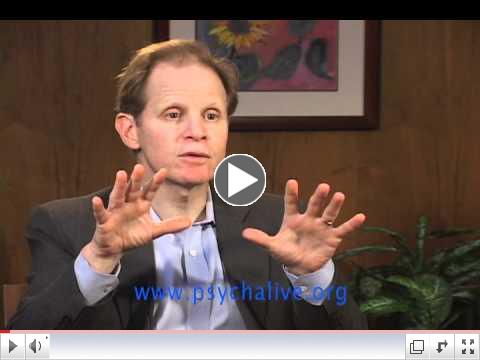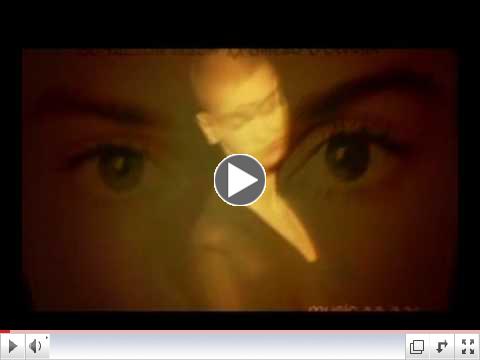Click icon for
Facebook page:
 |
|
Marty L. Cooper, MFT
(415) 937-1620
4831 Geary Blvd.
San Francisco, CA 94118
martycooper@
mlcooper.com
www.mlcooper.com
| |
|
|
|
Greetings!
Greetings!
I'm running a bit late this month, but as we've just passed Mother's Day, wanted to send along some thoughts on Mother, and the deep roots of our desire and need for Mother. (There's also some great clips of Dr. Dan Siegel linked at the bottom of the article, along with two songs about Mother). |
|
MOTHER IS NOT NEGOTIABLE
Happy Mother's Day!
This month's article is a couple of quick thoughts on the nature of, and need for, Mother. Notice I spelled that with a capital "M", because the Mother I'm talking about is the archetypal mother, not the one who used to tell you to eat the runny eggs. That's the corporeal approximation of Mother, who was hopefully a decent enough version such that the primal qualities of Mother-safety, validation, containment, holding, love-came through, despite (or perhaps as channeled by) the funky human qualities of mom. But whether that was the case for you or not, the need for Mother, meaning the need for those basic functions of mothering, is not negotiable. We really do need our Mother.
The book "Loneliness: Human Nature and the Need for Social Connection" (Cacioppo and Patrick, 2008), makes a fascinating and, to my mind, convincing case that not only is connection desirable, but that our whole nervous, emotional, and relational systems have been crafted over evolutionary time to define human social connection as mandatory. Regardless of what our personal minds may say about connection, our deeper and older aspects unequivocally move towards connection. We simply don't function well (or as well) when we can't find the attachments and affiliations that we, deeply, need.
Here's a for instance: when the early researchers of attachment theory (basically, a stream of research investigating the nature of mother-infant connection) watched young children engage with their mothers, they noticed there were the confident (secure), and the unconfident (insecure), who broke down into the avoidant, ambivalent, and disorganized "attachment styles." The first, avoidant, is where the child tries to manage the distress of an unavailable or inconsistent parent by denying their need (here is Dan Siegel describing this state). Yet, when the researchers measured the child's heartbeat, they discovered significant arousal in the face of a parent, even though overtly, the child showed little interest or attempt to engage that parent. The body, and nervous system, has its opinion.
"Loneliness" makes an evolutionary argument for what this is, that we should be distressed when feeling disconnection from parents. Our evolutionary history is a story of a hugely competitive environment in which individualism vied with pro-social behavior to see who survived better (i.e., who produced the most offspring), both among species and within species. The model that has won out, in spades, is the intensely social model, in which the winners are those who are most adept at social relations and connections.
Wait a second, you may say, there are billions of lizards, so how does this hold true? It's true that there are plenty of "lightly social" creatures on this planet, but the dominant species, the one that climbed to the top of the pecking order, is one in which social behavior and bonding is not only the norm, but is actually mandated (and its lack, punished) by the nervous system. The book references research concerning how loneliness (the lack of desired connection, distinct from "solitude") is accompanied by diminished cognitive capacity, diminished threat identification, diminished satisfaction, and a pain that is analogous to physical pain.
Our bodies and nervous systems really want to connect, to feel safe through affiliation, because literally, through most of our genetic history, we did live or die according to whether the tribe held us or rejected us. The monkey who cannot find its place in the tribe, or who wanders off into the savanna, ignoring the tribe, are monkeys who didn't live long enough to reproduce their genes. We are descendents of the social primates; the un-social ones got eaten, or have remained at a basic level of development. The hyper-social-humans-have prevailed in the competitive race. (There are pathologies, of course. The fascist construct seems to belie the idea of the value of social relationship, and yet-and this is a larger discussion than I have space for here-over time, the systems that balance individualism with social unity have risen, painfully, to the top.)
So, Mother. The summation of "Loneliness" is that human beings do not function well without Mother, without a sense of connection, protection, safety, and love (bonding). We can jump up and down about this, but our bodies still want what they want, and need what they need. Perhaps some alien species we connect with in the future may not have the same genetic history, and may play by different social and attachment rules. But for us, with our own survival history, even if safety and security are ultimately (objectively) illusory, they are illusions that we cannot function without, because they are nutrients that our nervous system and deeper minds need, and because they have been so positive in the evolutionary struggle.
Therefore, back to the individual level, we must have a Mother to thrive, but thankfully, our nervous systems also have inbuilt a flexibility in defining what serves that Mother function. Our small-m mother may have failed utterly at protection/holding/love, but our nervous systems remember (perhaps deep down) what Mother is, and will continue seeking Her. We may go through periods where our surrogate Mother is work, or money, or relationships, or drugs, but given enough time those surrogates fall away, or give way to larger experiences of Mother, of those essential, primal functions.
And, if what the mystics say is true, then that falling away of surrogates eventually brings us, usually after a long and challenging journey, to a direct and unmediated experience of Mother herself, those qualities made visceral and embodied. Then safety and love (both in the giving and receiving) become essential qualities of being, rather than experiences to be longed for and chased. Happy Mother's Day!
----------------
Here's some more to explore: Dan Siegel's youtube series is great, especially on attachment.

And Sinead O'Conner's and Paul Simon's takes on Mother:  
|
|
My Book is Now Available:

My book,
Anxiety and Depression: 42 Essays on Overcoming the Wild Moods, is for sale as paperback or Kindle.
It is a collection of short essays, focusing on the challenge of managing, and ultimately, uprooting depression and anxiety. You can find a few sample articles here, and can purchase the book on Amazon here.
|
|
Archive of Past Newsletters
All past issues of Tame Your Mood can be found here. |
|
Audio Recordings Various audio recordings can be found here. |
|
About Marty
I am a San Francisco psychotherapist who helps individuals struggling with anxiety and depression to not only manage these "wild moods," but eventually learn how to overcome them. I work comprehensively with mental, emotional, bodily, and spiritual dimensions and anxiety and depression, all "wild moods," but eventually learn how to overcome them. I work comprehensively with mental, emotional, bodily, and spiritual dimensions and anxiety and depression, all
of which are necessary to overcome the chronic quality of anxiety and depression.
If you are interested in exploring working together in psychotherapy, please contact me at:
415.937.1620,
or email at:
|
|
|
|
|